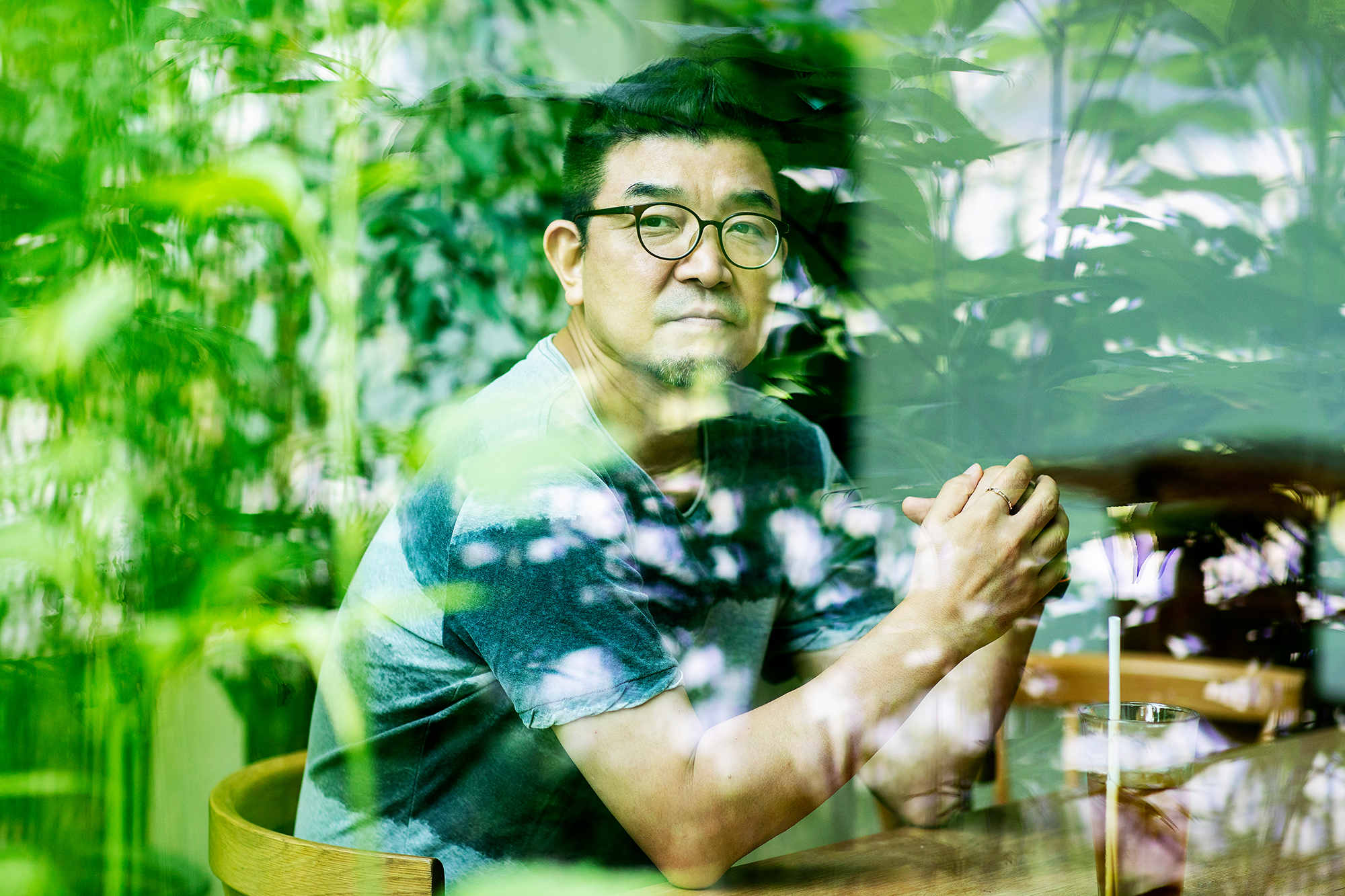- Magnificence of Mediocrity July 29, 2021
-
Jung Duk-hyun (Korean Lang. & Lit., Entering Class of '87), Cultural Critic Who Interprets Content with Depth and Warmth
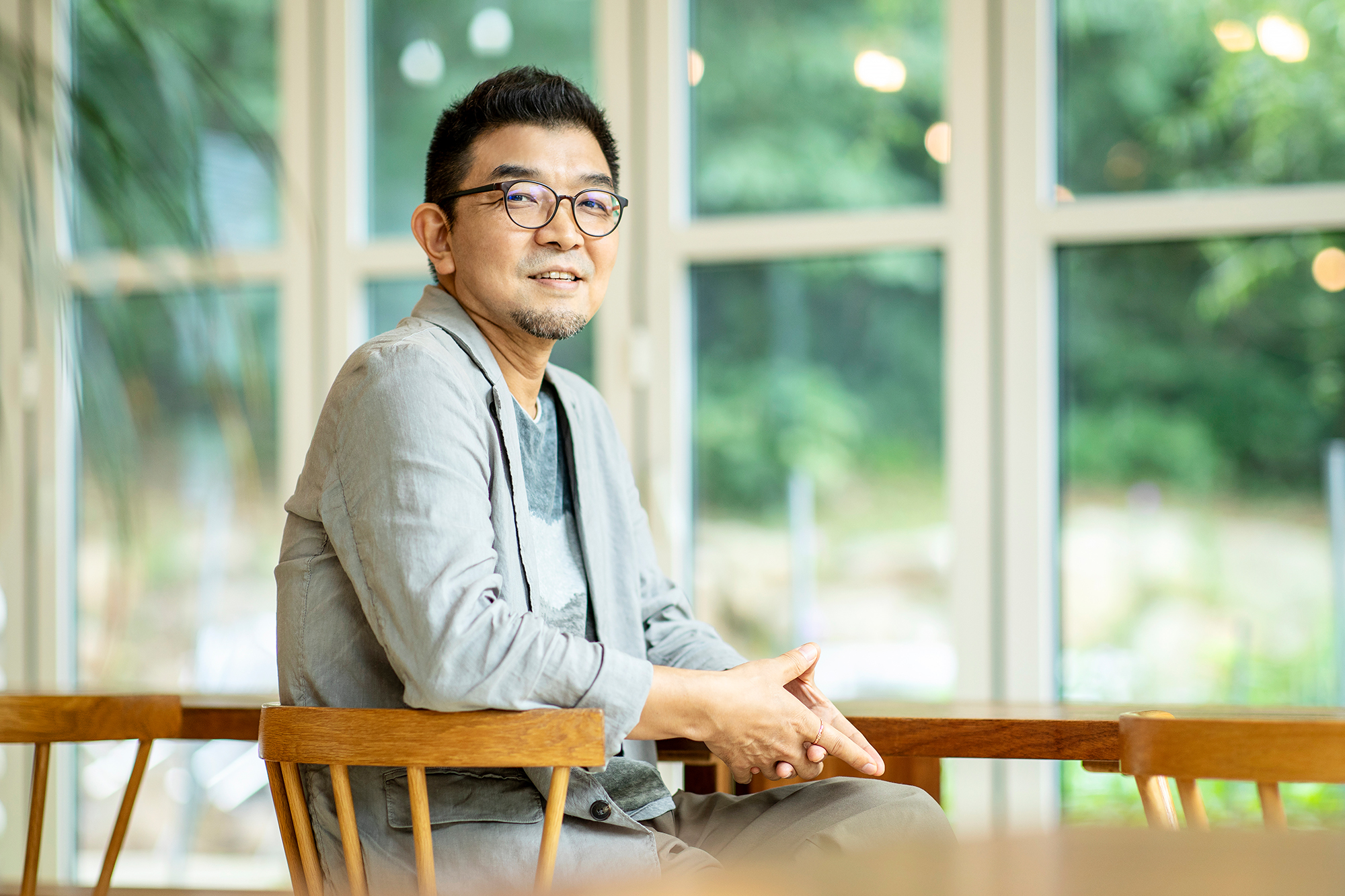
The Most Notable Cultural Critic
A Yonsei University alumnus Jung Duk-hyun is called the "most content-loving" cultural critic in South Korea. As a critic, Jung has found hidden meanings within small things such as numerous cultural contents that vary in genres and constantly change, be it a single line of dialogue or a scene that evokes laughter and tears from the viewers. He has been conveying the power and resonance that content can bring in people's hearts, evoking public sympathy in each era. His review spectrum has been noted for providing insights into the trend of times, therefore, consistently receiving love from many content creators and the public.
Time of Freedom in Creation, Yet Uncertain Future
Jung Duk-hyun was an aspiring novelist since high school. Despite numerous persuasions to convince him to choose a different major as he enrolled in the university, his passion for writing – particularly novels – made Jung determined to study at the Department of Korean Language and Literature without hesitation. The public perception of the Korean language and literature major as a "starving department" did not matter to him. Among many universities available, the liberal atmosphere of Yonsei University played a significant role in him making up his mind.
"The atmosphere then was quite chaotic with the 1987 pro-democracy movement, but it gradually improved with hosting the 1988 Seoul Olympics. There were opportunities to try out many activities; I was able to study literature in the literature club "Stray Bullet." It was when I was able to attempt various types of writing. The novel, poem, drama, theater, movie scenario, etc., there was nothing I did not try. It is, therefore, no surprise that my memories in Yonsei revolve mainly around writing in freedom."
Nonetheless, regardless of how much he loved writing as a literature student, there was always a sense of uncertainty about the future. This was especially so when he was near graduation, as he began to hear the news of his friends with whom he used to write getting employed. It was also around this time when the "cable era" started, where visual media became a new field of opportunity for writers. This was not an exception for him either.
"I looked for a job where I can make money from writing. As the cable industry developed in the '90s, the word "video age" came to mind. It was a word that fundamentally changed my life as a writer. I remember going to a scenario academy to pursue movie production as a career, and there were times when I filmed a movie myself. I was writing for days and nights, just like the past."
Pursuing the career of a screenwriter was arduous. Though expected to relieve the anxiety of uncertainty, it left him with many scars. There were days when he questioned his talents after consecutively failing to win scenario contests, and there were even occasions when his movie production was canceled at the last minute. Conclusion to the life as an aspiring novelist on campus was impending, and with Jung determined to marry his wife, whom he met at a screenplay academy, he had to compromise with reality.
The Compromise that Led to the Path of a Critic
Concluding his precarious days, Jung joined a liquor company's public relations team. From press releases distributed to reporters, articles in the company newsletter, to messages from the CEO, he was ironically writing too much in the company. Though these commercial writings were distanced from writings he desired in the past, being a middle point between making an income and writing for a living, his works in the company somehow gave him a partial sense of relief. However, this did not last long. After a year since his employment, the Asian Financial Crisis forced him to find a new source of living. At the recommendation of his friend, he became the head of a one-person team in a production company that evolved to develop a cyber-singer, "Adam." He was in charge of all public relations tasks, including creating stories for characters and responding to reporters even before its launch. "Adam" was the best result of the technology at the time, and the project was a success. In the process, he experienced the entire process of record production, and such experiences expanded his understanding of the entertainment and music industries. However, the character could not be developed in different mediums due to technical limitations, causing him to quit. Since then, he has experienced several companies, including launching and working as editor-in-chief of a medical magazine recommended by the Yonsei College of Medicine alumni. Soon after finishing his fluctuating life working in companies, Jung pursued a path as a freelance writer for years afterward.
"Working in companies did not seem to be my destined path. After a long detour, I came back to writing. But making a living as a freelancer was too much of a challenge. I would write for anything as long as it allows me to make money for a living. Be it a ghostwriter or a publisher outsourcing planning; there was always a sense of uneasiness because I'm no better than a jobless man without work. During such times, I was asked to write a manuscript by a friend who launched an online media outlet for sports entertainment. It was not really a review, but more like a piece of writing after watching a movie. Fortunately, my writing was well received, so I started to write more and more articles for that column."
As Jung writes, he gained more attention with gradually increasing work requests. After reading his article, requests for manuscripts from other media increased, and it was just at the time when online portals were growing and magazine content was flowing into the online platform. Additionally, with very few critics writing on TV programs, it was a turning point that officially allowed him to begin his career as a pop culture critic.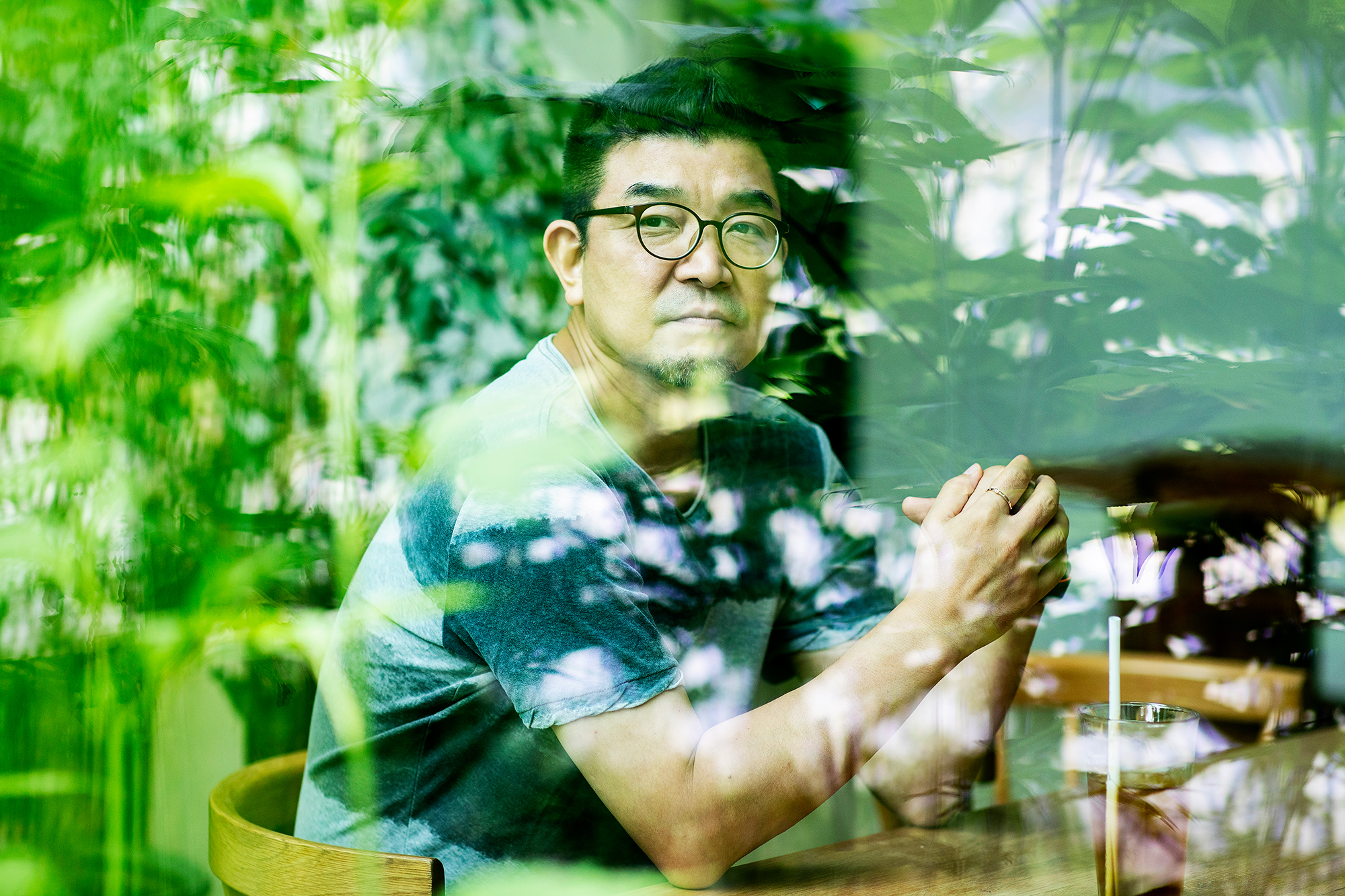
A Critic Who Reads the Trends of the Times in the Content
Looking back, Jung Duk-hyun would say that his life as a pop culture critic is a collection of small assets he has accumulated since he was young. The experiences from his childhood, when he loved watching TV so much that it became a concern for his parents, and his college days when he watched almost all the movies in the video store while dreaming of becoming a movie screenwriter, allowed him to have a wide range of knowledge essential a pop culture critic who is tasked to analyze and provide reviews for countless contents across various genres. Moreover, he has always been "writing" throughout his life. His experiences, while inevitably compromising with reality, along with countless writings he had written, allowed him to pioneer a new path as a pop culture critic. For him, being a pop culture critic was a perfect fit.
"Writing as a critic is not limited to simply delivering information; it is about writing a piece that also includes my thoughts and analysis. This is writing that was fun to read, and it was such writing that gained popularity on online platforms. My writings gained huge attention on portal sites; since then, I have been writing as a pop culture critic every day for 17 years. There were instances where I had to write while on vacation."
A cultural critic is slightly different from a critic who digs into a genre. The characteristics of each content, such as movies, music, and television broadcasts, all have a common point when viewed from afar. The current trend in music would somehow be in line with the trends in movies and entertainment shows. The ability to provide such a macroscopic view across all forms of media content is a strength of a cultural critic. This ability, no doubt, is also a cumulative result of little episodes Jung experienced in his life.
"Various cultural contents depict the era. The answer to the question "why would people watch this?" lies in how people would think back then. When content stimulates a certain thirst and deficiency of the contemporaries, the public will show great attention and enthusiasm about the content. I wrote for a long time, analyzing content that reflects the times. As it piled up, it became an asset, and now I have developed the ability to see the flow of culture and trends."
His meta-view of reading the flow of era from changes in content extends his role as a person who would read and predict trends. No longer is Jung simply writing reviews; he is now also providing lectures for companies and organizations that cannot keep up with trends or need to predict the upcoming trends. His message to them is clear. "The times are changing."
"I've been able to do a lot of unexpected things. I never thought I'd be able to speak at the corporations. What I've learned in that respect is that regardless of how insignificant it might seem at the moment, if someone continues to pursue a determined path for more than a decade, there's a lot one can do with it eventually. It would open up roads that I was unaware of. Before starting my career as a cultural critic, I did many things I thought were useless. I wrote many kinds of writing, even though they were not the novel I dreamt of. There were times when I questioned myself, "am I going to end up writing insignificant pieces for the rest of my life?" but these experiences later became vital assets for my career. Not only did it help me understand a wide range of content, but I was able to write in various patterns according to different media I dealt with."
Power of Warm Review to Elicit Empathy
Jung Duk-hyun's day begins at 6 a.m. every day. He would finish his writings in the morning, followed by attending various meetings in the afternoon, after which he would watch television programs from 9 p.m. until he goes to bed around 2 a.m. Having to write every day without a weekend with such a routine is indeed hard work, no matter how much one loves to write. The same goes for him, who has been writing his whole life. Whenever he is faced with times when his head becomes a blank sheet in front of his laptop, it poses a challenge even for a veteran writer, a burden that comes with his life-long job. Additionally, having to watch various genres of content for hours for one or two manuscripts every day can be exhausting, no matter how attractive the content is.
"Sometimes, my head would go blank with no idea what to write. The funny thing is, if I sit at my desk and frantically think of ideas, I would eventually get the writing done no matter what. This is the reason why I write every day. Without question, I would wake up at 6 a.m. every day and write all the manuscripts I must complete after breakfast. Normally, one would write because he comes up with an idea; I have to force myself at my desk to write. The same goes for overcoming something to make an achievement. If I approach all content from a critic's point of view, nothing would be entertaining, but I always approach the content from the viewer's perspective. If you watch too much, you get used to any content. I would watch a program with my family, carefully observing their reactions while watching. I would also refer to the opinions of average viewers. Based on these reactions, if I watch the same show for the second time, I can notice things I missed in the past. It is at this point where I trust myself to be qualified to give a review of the content."
Perhaps that's why his reviews naturally touch a point where the public can empathize rather than focus on criticism alone. By interpreting the range with a deep and warm perspective, he conveys the calm resonance that the content brings out from the viewers. This is also the reason for the popularity of his book, which talks about life through lines in the drama. On top of that, writers of the contents themselves would find the meaning of their creations from his critique, which points out the hidden intentions and depth of the story that the writer wants to convey more accurately than anyone else.
"The greatest sense of fulfillment comes when I receive responses from my reviews. It's all the more so when we can relate to each other. I do have a desire to communicate, after all. There was once when I contacted a drama writer who refrains from being exposed to the public to ask for a recommendation for my book. It was hard even to know the phone number. I somehow managed to get the number and tried to contact the writer, yet there was no response, as expected. Then around five minutes later, the writer called me back, after finding out that the person who called was me. The writer accepted my request quite willingly, unlike my initial prediction. When I asked why, the writer replied that my reviews gave the writer the strength to continue the work when having a hard time writing. This is definitely one of the moments when I derive the greatest happiness as a critic."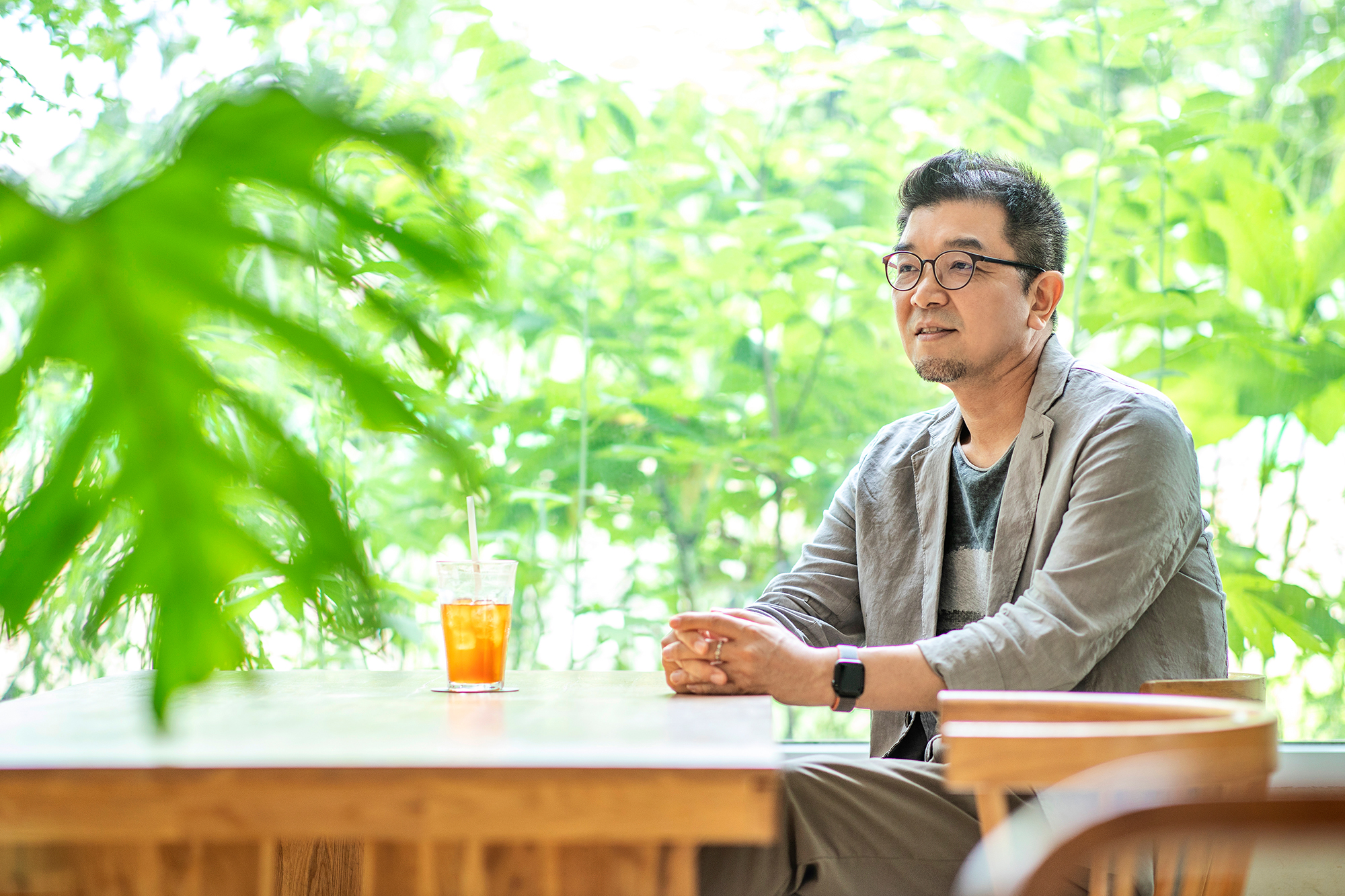
To Be More Meaningful, without Faltering
As a critic, Jung is working on analyzing numerous works such as dramas and entertainment shows, but there is a show remaining more memorable than others for him.
"My focus these days is "peace of mind." As I got older, I became more concerned about faltering as an individual. This might be why the drama My Mister particularly resonated with me. What is this show trying to convey? After watching the drama over a couple of times, I realized that it was about the road to comfort. Symbolically, the drama portrays the "Mister" to be professional in inspecting and diagnosing shaky buildings, while the main character's name is "Jian," meaning "reaching comfort." I don't think the age of 50 is a period to be diagnosed as "shaky," but I think I'm old enough to start something new. I'm worried about whether I should find a new path or if there's no way I can adventure the new while accompanying my old path."
He hopes for a more meaningful life, free from the pressure to achieve something at this point after living to survive until now. Above all, he wishes to do something that can contribute to the world he is living in. There were times in the past when he desired fame while living a life of tension. However, these days he came to wonder if his writing could help the public. He still wants to be a critic who can comfort those in need and help those who are dull to regain their senses. This is also what he first pledged when he started his first piece of writing as a student in the past.
"As I first started writing, I thought I should write something that can help people. However, as writing became a living, I think the determination gradually faded along with time. I am trying to regain my original determination in the past. This is also why I have not given up on my dream to be a novelist. I hope to write a story-oriented novel that can be applied to various media such as dramas and movies. Someday, I think I'll find the intersection where the spirit of the times meets my life, the story which can be written in a novel. It will be hard, but I will make it happen."
It's OK to Lose, Just Do What You Love
With no end to the pandemic in sight, Jung Duk-hyun offers consolation to the tired souls by saying, "you can lose," a phrase from a drama line. There is a need to be aware of the aesthetics of losing, with so many people forgetting their right to fail and lose as they are obsessed with the idea of winning at all times.
"There are so many things that we can't do in the age of pandemic. But if you're obsessive about what you can't do, while throwing a question like "I want to do it so much, why can't I?" you are making your life too difficult. There is no need to give up completely, but accepting the difficulties of the current situation seems necessary to maintain our lives in the COVID era. The code of this era is that "there are things we can't do." I want to urge everyone to have some time to think about how we can find what we like and live happily within the little room of freedom we have at this moment. A life of trying to point the finger at someone, not just yourself, will just make our every day exhausting."
Along with the same logic, he advises his junior Yonseians to "look at yourself as you are." In times of trouble, or even in times of joy, if we accept the situation as it is and take an authentic look at ourselves, we will gain the strength to pursue what we love. The hardship comes from the internal conflict between "what I am good at" and "what I want to do." Then, which direction should I choose? Jung recommends selecting the latter.
"We often confront between "what I like" and "what I am good at," but you should definitely do what you like. You can only work for long if you love it. Even if the work is not your greatest strength, you will reach a point where you are skilled if you do it for a long time, after all. I was always told to be more inclined toward natural sciences in aptitude tests, but I chose literature because I liked it. It involved a long detour, but I managed to be skillful in what I love after all these years, and my natural science tendency is to help organize logical writing. But there is something you should know; "what I like" is not just about enjoying something; it is also about doing something that would make me look cool and being able to do that work for a long time."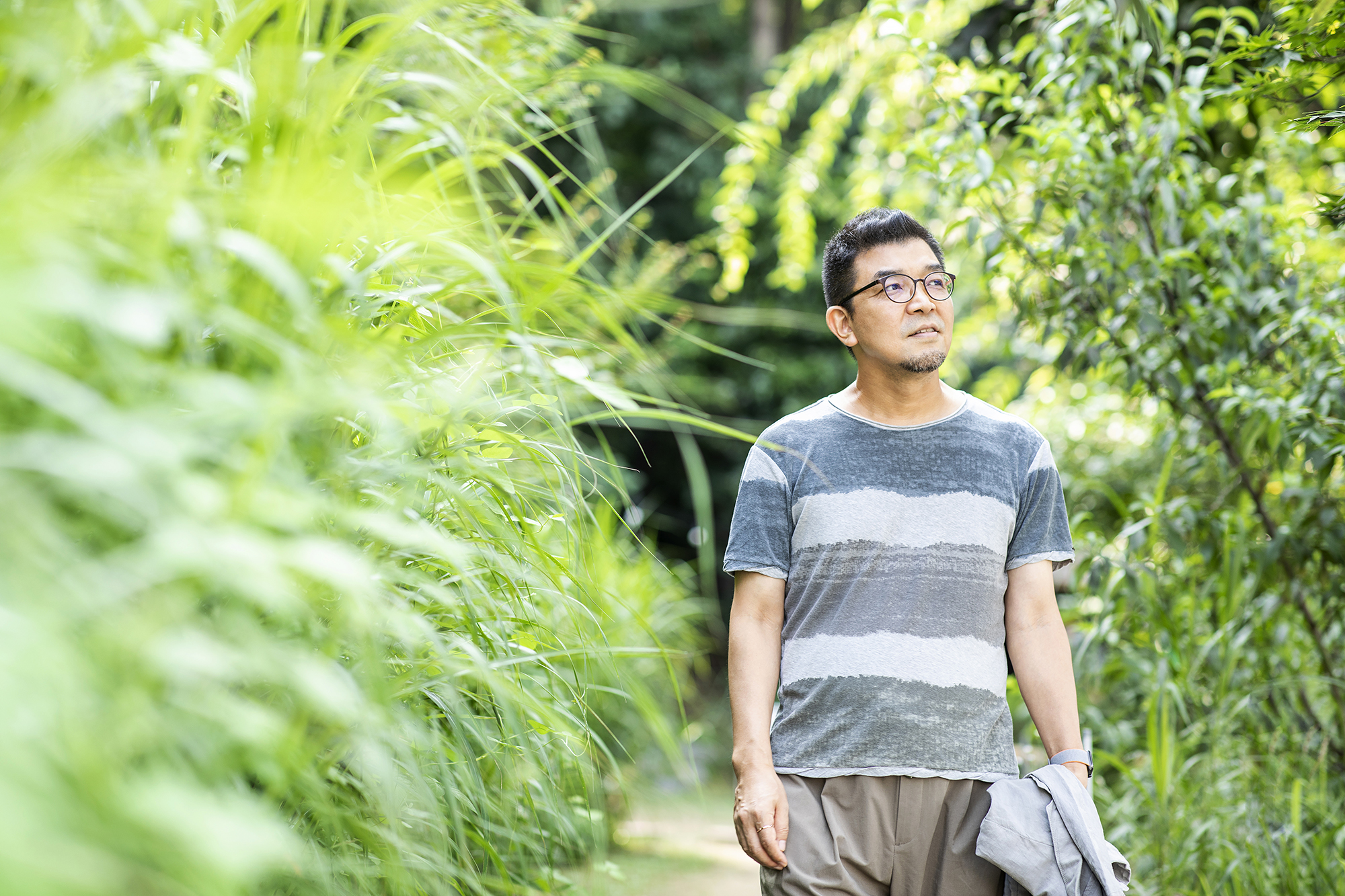
"Eventually, everyone would choose a path that they like, after which they will eventually connect their love with their strength," says Jung Duk-hyun. It might sound simple at first glance, but after taking a glimpse into his life journey, one has to go through a rough process. Jung also once accepted the reality, yet he did not stop pursuing his passion, writing. The mediocre yesterday that filled up the diary has built up an individual of today who is solid and undefeated, someone who can proudly take one step closer to the future he dreams of. The magnificence of mediocrity is beyond imagination.
show mobile menu
mobile menu

